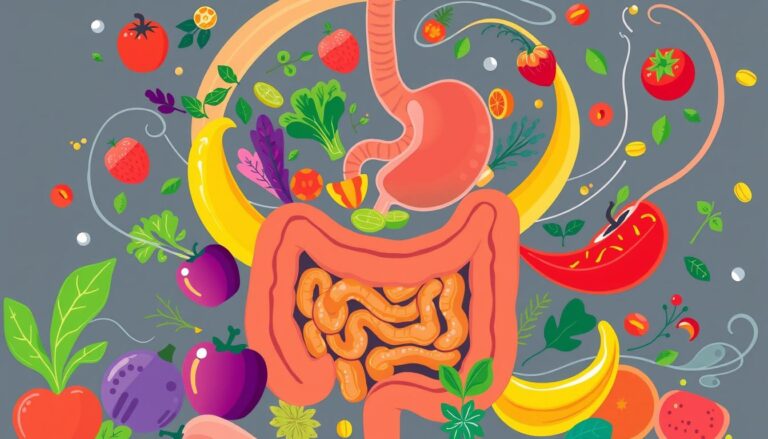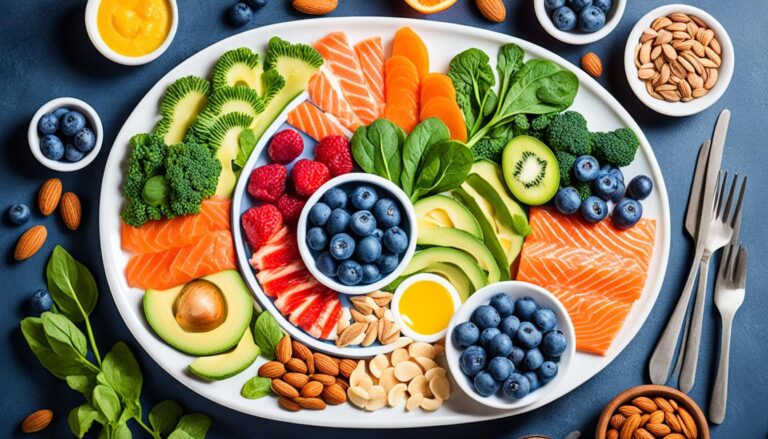Egg protein have you ever stood in your kitchen, wondering if your breakfast choices truly support your fitness goals? You’re not alone.
Thousands of health conscious Americans search for reliable nutritional data every day hoping to make informed decisions about their diet.
When it comes to high quality protein sources, one food stands out for its remarkable nutritional profile. According to verified nutritional data, whole eggs contain 12.6 grams of protein per 100g. This measurement serves as the gold standard for dietary planning and nutritional comparison.
What makes this particular food so special? It’s recognized as a complete protein source containing all nine essential amino acids your body needs but cannot produce on its own.
This comprehensive guide breaks down everything you need to understand about the protein content in eggs. You’ll discover how size affects nutritional values, how cooking methods impact quality, and how this breakfast staple compares to other protein-rich foods in your diet.
Key Takeaways
- Whole eggs deliver 12.6 grams of high quality protein when measured per 100 grams
- A large egg weighing 68 grams provides approximately 7.5 grams of protein
- Medium-sized eggs contain around 6.4 grams of protein at 58 grams each
- Eggs qualify as a complete protein source with all nine essential amino acids
- The 100-gram measurement standard enables accurate nutritional comparisons across different foods
Understanding Protein Content in Eggs
Every cell in your body depends on protein to maintain its structure and perform vital functions. When you evaluate different foods for their nutritional value, understanding protein content becomes essential for making informed dietary choices. Eggs stand out as one of nature’s most efficient protein delivery systems.
The question of how much protein in an egg matters more than just the quantity alone. The quality, digestibility, and amino acid composition determine how effectively your body can use that protein. This makes eggs particularly valuable for anyone focused on meeting their daily protein requirements through whole food sources.
Recognizing eggs as protein source requires understanding what sets them apart from other protein rich foods. Their unique nutritional profile has made them a dietary staple across cultures for thousands of years.
Why Protein Matters in Your Diet
Protein serves multiple critical functions that extend far beyond muscle development.
Your body uses this macronutrient for tissue repair, enzyme production immune function, and cellular maintenance. Without adequate protein intake, these essential processes cannot operate efficiently.
The average sedentary man needs approximately 56 grams of protein daily, while the average sedentary woman requires about 46 grams. These baseline requirements increase significantly for individuals who engage in regular physical activity or strength training.
Protein plays a fundamental role in building and maintaining bone density. This mineral-supporting function works alongside calcium to create strong skeletal structure throughout your lifetime. Your muscles skin hair, and nails all depend on consistent protein availability for regeneration and growth.
The body cannot store excess protein the way it stores fats and carbohydrates. This means you need to consume adequate amounts regularly through your daily meals. Missing protein targets consistently can lead to gradual muscle loss, weakened immune response, and slower recovery from physical stress.
Eggs as a Complete Protein Source
Nutritionists classify eggs as a complete protein because they contain all nine essential amino acids your body cannot produce independently. These amino acids must come from dietary sources, making food selection crucial for optimal health.
The two primary proteins in eggs are ovalbumin and ovomucin. Ovalbumin makes up approximately 54% of the egg white protein content and provides excellent nutritional value. Ovomucin contributes to the egg white’s gel-like structure while adding additional amino acids to the overall profile.
Essential amino acids work together to support various bodily functions. Your system uses these building blocks to create the specific proteins needed for different tissues and processes. Without all nine present in adequate amounts, protein synthesis becomes limited.
| Essential Amino Acid | Primary Function | Abundance in Eggs |
|---|---|---|
| Leucine | Muscle protein synthesis | High |
| Lysine | Calcium absorption, collagen formation | High |
| Methionine | Metabolism, detoxification | Moderate |
| Tryptophan | Serotonin production, mood regulation | Moderate |
| Valine | Energy production, muscle coordination | High |
The biological completeness of eggs as protein source means your body can utilize nearly all the protein they provide. This high bioavailability sets eggs apart from many plant based proteins that may lack one or more essential amino acids.
For individuals seeking maximum nutritional efficiency, this completeness represents a significant advantage.
Nutrition scientists use eggs as the reference standard when evaluating other protein sources. This gold standard status reflects both the amino acid profile and the digestibility that eggs consistently deliver. The combination of quantity quality, and accessibility makes them an optimal choice for meeting daily protein requirements.
Egg Protein per 100g The Exact Numbers
Accurate protein tracking starts with understanding how much protein eggs actually contain per 100 grams. This standardized measurement helps you calculate your daily intake with precision. Whether you’re building muscle, managing weight, or simply maintaining a balanced diet, these numbers matter.
The protein content in eggs remains remarkably consistent across different varieties and preparations. This reliability makes eggs an excellent choice for meal planning. You can count on getting the same nutritional value every time you crack open an egg.
Most nutritional databases use the 100-gram measurement as their standard reference point. This allows for easy comparison with other protein sources. Understanding both the per-100g measurement and individual egg sizes gives you complete control over your nutrition planning.

Read more:Explore Delicious Plant Based Egg Replacements
Whole Egg Protein Content
A standard measurement shows that 100 grams of whole eggs contains 12.6 grams of protein. This figure represents the combined protein from both the white and the yolk. The number remains consistent whether you purchase conventional or specialty eggs.
Individual egg sizes vary significantly in the grocery store. Each size category contains a different amount of total protein based on its weight. Understanding these differences helps you track your intake accurately.
Here’s a complete breakdown of protein content across all common egg sizes:
| Egg Size | Weight grams | Protein Content grams | Percentage of Daily Value |
|---|---|---|---|
| Small | 48g | 5.2g | 10% |
| Medium | 58g | 6.4g | 13% |
| Large | 68g | 7.5g | 15% |
| Extra-Large | 78g | 8.7g | 17% |
Large eggs are the most commonly used size in recipes and nutritional calculations. When you see nutritional information for one egg it typically refers to this size. The 7.5 grams of protein in a large egg makes it easy to calculate meal totals.
Extra large eggs provide nearly 9 grams of protein each. This makes them an efficient choice for athletes and active individuals. The slight price increase often proves worthwhile for those focused on maximizing protein intake.
Raw vs Cooked Eggs Protein Comparison
Cooking method has minimal impact on the total protein content of eggs. A whole raw egg contains approximately 6.3 grams of protein. A hard-boiled egg contains the same 6.3 grams, while a fried egg contains 6.26 grams.
The slight variation in fried eggs comes from minor moisture loss during cooking. This difference amounts to less than 1% of total protein. For practical meal planning purposes, you can consider the protein content identical across cooking methods.
Raw eggs carry significant health risks that outweigh any perceived nutritional benefits. The Centers for Disease Control warns that raw eggs may contain Salmonella bacteria.
This pathogen can cause serious foodborne illness, particularly in children, elderly individuals, and those with compromised immune systems.
Cooking eggs thoroughly eliminates Salmonella risk without reducing protein availability. Heat denatures the protein structure but doesn’t destroy the amino acids your body needs. In fact cooked eggs are more digestible than raw eggs, with absorption rates reaching 91% compared to only 51% for raw eggs.
Different cooking methods preserve protein content equally well. Whether you boil, scramble, poach, or fry your eggs, the protein remains intact. The key difference lies in what you add during cooking, such as butter or oil which affects calorie count but not protein content in eggs.
Breaking Down the Nutritional Value of Eggs
When examining egg nutritional value, the complete picture reveals why nutritionists consistently rank eggs among the most nutrient-dense foods available.
Per 100 grams, eggs provide not just protein but a balanced spectrum of essential nutrients your body needs daily. This comprehensive nutritional profile makes eggs stand out as a dietary powerhouse.
The beauty of eggs lies in their efficiency. They deliver substantial nutrition without excessive calories making them ideal for various dietary goals. Whether you’re building muscle managing weight, or simply seeking optimal nutrition, understanding what eggs contain helps you make informed choices.
Macronutrient Profile
The macronutrient composition of eggs per 100 grams creates a balanced nutritional foundation that few foods can match. With 12.6 grams of protein, 9.0 grams of fat, and virtually no carbohydrates, eggs provide clean fuel for your body.
The fat content deserves special attention. Of the 9.0 grams total fat, only 2.5 grams are saturated fats. The remaining fats include 3.4 grams of heart healthy monounsaturated fats and 1.4 grams of polyunsaturated fats. This favorable fat profile supports cardiovascular health rather than compromising it.
Eggs contain only trace amounts of carbohydrates and sugars. This makes them naturally compatible with low-carb and ketogenic diets. The absence of carbohydrates also means eggs won’t spike your blood sugar levels.
The salt content sits at just 0.39 grams per 100 grams. This modest sodium level fits comfortably within daily recommended limits for most people.
Eggs are one of the few foods that should be classified as superfoods. They are loaded with nutrients, some of which are rare in the modern diet.
Micronutrients and Vitamins
The micronutrient wealth in eggs truly showcases their exceptional egg nutritional value. Eggs naturally pack an impressive array of vitamins and minerals that support multiple body systems simultaneously.
The B-vitamin complex in eggs includes several critical nutrients:
- Vitamin B2 Riboflavin Supports energy metabolism and cellular function
- Vitamin B12 Essential for nerve health and red blood cell formation
- Folate Critical for DNA synthesis and cell division
- Biotin Promotes healthy skin, hair, and metabolic processes
- Pantothenic Acid Aids in converting food into usable energy
Beyond B-vitamins, eggs provide important fat-soluble vitamins. Vitamin A supports vision and immune function, while vitamin D aids calcium absorption and bone health. These fat-soluble vitamins absorb more efficiently because of the natural fats present in eggs.
The mineral content includes selenium, a powerful antioxidant that protects cells from damage. Iodine supports thyroid function while phosphorus strengthens bones and teeth. These minerals work synergistically to maintain optimal health.
Choline deserves special recognition. This often-overlooked nutrient plays vital roles in brain development metabolism, and gene expression. Many people don’t get enough choline from their diets, making eggs an excellent source.
Egg yolks contain lutein and zeaxanthin, two antioxidants that concentrate in the retina. Research shows these compounds reduce the risk of age related macular degeneration and cataracts protecting your vision as you age.
Caloric Content per 100g
At just 131 calories per 100 grams 547 kilojoules eggs demonstrate remarkable nutrient density. This caloric efficiency means you receive substantial nutrition without consuming excessive energy.
For perspective, one large raw egg weighs approximately 50 grams and contains only about 71 calories. This makes eggs an incredibly efficient protein and nutrient source for calorie-conscious individuals.
The low calorie count becomes even more impressive when considering what those calories deliver. Every calorie from eggs carries essential amino acids beneficial fats vitamins, and minerals. Few foods offer such comprehensive nutrition per calorie consumed.
This caloric efficiency makes eggs valuable for various dietary approaches. Whether you’re maintaining weight, building muscle on a lean diet or creating a calorie deficit for fat loss eggs fit seamlessly into your nutritional strategy.
The balanced macronutrient ratio also promotes satiety. The combination of protein and healthy fats helps you feel fuller longer potentially reducing overall calorie intake throughout the day. This natural appetite control adds another dimension to eggs’ nutritional advantages.
Egg White Protein vs Egg Yolk Protein
When you crack open an egg, you’re accessing two distinct protein sources with unique nutritional profiles. The common belief that all protein resides in the white portion has led many health conscious eaters to discard the yolk entirely.
However the actual protein distribution between these two components reveals a more balanced picture than most people realize.
Both parts of the egg contribute significantly to its overall protein content.
A large egg containing approximately 6.3 grams of total protein splits this macronutrient between the white and yolk in specific proportions. Understanding this breakdown helps you make informed decisions about whether to consume whole eggs or separate the components based on your nutritional goals.

Read more:10 Healthy Foods Fruits Legumes Fiber amp Protein
The White Advantage
The clear, viscous portion of an egg delivers approximately 3.6 grams of protein per large egg. This egg white protein comes packaged in a remarkably low calorie format, making it attractive for those focused on maximizing protein intake while minimizing overall energy consumption.
Egg whites consist of roughly 88% water with the remaining 12% composed primarily of proteins. Scientists have identified more than 150 different protein varieties within this transparent liquid. The most abundant among these is ovalbumin which accounts for approximately 54% of the total protein content in egg whites.
The simplicity of egg whites makes them ideal for specific dietary applications. With virtually no fat carbohydrates, or cholesterol, they provide pure protein without additional macronutrients. This characteristic explains their popularity among bodybuilders and individuals following strict calorie-controlled diets.
The Yolk Contribution
The golden center of an egg contributes approximately 2.7 grams of protein per large egg. While this represents slightly less than the white portion egg yolk protein accounts for nearly half of the egg’s total protein content. This substantial contribution often surprises people who assume the yolk provides minimal protein value.
Egg yolks contain a concentrated blend of nutrients alongside their protein. The compact size of the yolk belies its nutritional density, packing proteins, fats, vitamins, and minerals into a small volume. This concentration makes yolks exceptionally nutrient-rich per gram compared to the more diluted white portion.
Comparing the Numbers
The question of which part provides more protein has a straightforward answer: egg whites contain slightly more protein than yolks. In a typical large egg, whites contribute about 57% of total protein while yolks provide the remaining 43%.
This difference amounts to less than one gram, making it far less dramatic than popular fitness culture suggests.
The misconception that egg whites contain vastly more protein stems from the fact that whites make up about two-thirds of an egg’s total weight. When comparing protein concentration by weight, the yolk actually contains more protein per gram than the white.
A 100-gram portion of egg whites contains approximately 11 grams of protein, while 100 grams of yolk delivers around 16 grams.
Balancing Nutrition Priorities
Choosing between egg whites and whole eggs requires considering factors beyond protein content alone.
While whites offer marginally more protein with fewer calories yolks provide virtually all the vitamins minerals and beneficial compounds found in eggs. This creates a nutritional trade-off that depends entirely on your specific health objectives.
Egg yolks contain all of the egg’s vitamin A, D, E, and K, along with essential nutrients like choline, lutein, and zeaxanthin. These compounds support eye health, brain function, and cellular processes throughout the body. The yolk also provides healthy fats that aid in the absorption of fat-soluble vitamins.
The caloric difference between these components is significant. Egg whites contain approximately 17 calories per large egg, while yolks contribute around 55 calories. For individuals focused purely on weight loss while maintaining protein intake, this three-fold calorie difference can influence daily food choices substantially.
The following table illustrates the key differences between these two egg components:
| Component | Protein per large egg | Calories | Fat Content | Key Nutrients |
|---|---|---|---|---|
| Egg White | 3.6 grams | 17 calories | 0.06 grams | Riboflavin, selenium, potassium |
| Egg Yolk | 2.7 grams | 55 calories | 4.5 grams | Vitamins A, D, E, K, choline, lutein |
| Whole Egg | 6.3 grams | 72 calories | 5 grams | Complete nutritional profile |
Most nutrition experts recommend consuming whole eggs for optimal health benefits unless specific dietary restrictions apply. The modest difference in protein content between whites and yolks doesn’t justify eliminating the yolk’s substantial nutritional contributions for most people.
Athletes seeking maximum protein with minimal calories may benefit from incorporating additional egg whites into their whole egg consumption rather than discarding yolks entirely.
The Amino Acid Profile of Eggs
Understanding the egg amino acid profile helps explain why this humble food delivers such exceptional nutritional value. While knowing the total protein content per 100g matters the composition of that protein determines its actual usefulness to your body.
Eggs contain a perfectly balanced mix of amino acids that work together to support everything from muscle repair to immune function.
The quality of protein goes far beyond simple quantity measurements. Your body needs specific building blocks to create its own proteins, and eggs provide these in optimal proportions. This makes them uniquely valuable for athletes, growing children, and anyone focused on maintaining good health.
Essential Amino Acids in Eggs
Eggs contain all nine essential amino acids that your body cannot produce on its own. These critical compounds must come from your diet making food choices important for overall health.
This complete amino acid profile distinguishes eggs from many plant based proteins that lack one or more essential amino acids.
The nine essential amino acids found in eggs include histidine, isoleucine, leucine, lysine, methionine phenylalanine threonine tryptophan, and valine.
Each serves specific functions in your body, from building muscle tissue to producing neurotransmitters. The ratios of these amino acids in eggs closely match what your body needs for protein synthesis.
This balanced composition means your body can efficiently use nearly all the protein from eggs. Unlike incomplete protein sources that require combining different foods, eggs provide everything needed in a single package. This efficiency makes them particularly valuable for people with increased protein needs.
| Essential Amino Acid | Amount per 100g Egg | Primary Function |
|---|---|---|
| Leucine | 1.09g | Muscle protein synthesis |
| Lysine | 0.91g | Calcium absorption, collagen formation |
| Isoleucine | 0.69g | Energy regulation, immune function |
| Valine | 0.86g | Muscle growth, tissue repair |
| Methionine | 0.42g | Metabolism support, detoxification |
Why Eggs Score 100 on Biological Value
Biological value measures how efficiently your body absorbs and uses protein from different foods. Scientists developed this metric to compare protein sources objectively. Eggs achieve a near-perfect score of 100 on this scale, representing maximum protein utilization.
This exceptional score means your body can convert almost all the protein from eggs into usable amino acids. Very little waste occurs during digestion and metabolism. For comparison, beef scores around 80, while many plant proteins score significantly lower.
Nutritional scientists use eggs as the reference standard against which all other proteins are measured.
When researchers evaluate new protein sources they compare them to egg protein quality. This gold standard status reflects decades of scientific research confirming the superior digestibility and amino acid balance of eggs.
The high biological value matters practically because it means you need less total protein when choosing high-quality sources. A smaller serving of eggs provides more usable amino acids than larger servings of lower-quality proteins. This efficiency benefits both your nutrition and your budget.
Leucine Content and Muscle Building
Among the amino acids in eggs, leucine deserves special attention for its role in muscle protein synthesis. This branched-chain amino acid acts as a trigger that signals your body to start building muscle tissue.
Eggs provide approximately 1.09g of leucine per 100g, making them an excellent choice for muscle development.
Research shows that leucine directly activates the mTOR pathway in muscle cells. This biological pathway controls muscle growth and repair after exercise. Getting adequate leucine with each meal helps maximize the muscle building response to both food and training.
Athletes and bodybuilders particularly value the leucine content in eggs for post-workout recovery. The amino acid works alongside other nutrients to repair damaged muscle fibers and build new tissue. This makes eggs a staple in many strength training diets.
The leucine in eggs comes packaged with other branched-chain amino acids like isoleucine and valine. These three amino acids work together synergistically, enhancing each other’s effects. This natural combination provides better results than isolated amino acid supplements in many cases.
For optimal muscle building, consuming 20-30 grams of high-quality protein containing adequate leucine after resistance training supports recovery.
Two to three whole eggs easily meet this requirement while providing additional nutrients that supplements lack. The timing and quality of protein intake both matter for maximizing muscle growth.
How Egg Protein Compares to Other High Protein Foods
The protein landscape includes countless options, but how do eggs measure up against popular alternatives like chicken, yogurt, and plant-based sources?
Understanding these comparisons helps you build a balanced diet that meets your specific nutritional needs. When comparing egg protein to other high protein foods, several factors matter beyond just the numbers on a nutrition label.
Each protein source brings unique advantages to your plate. Some offer higher protein density, while others provide additional nutrients or better suit specific dietary restrictions. The key lies in understanding these differences and choosing what works best for your lifestyle and health goals.
The Chicken Breast Comparison
Chicken breast contains approximately 31 grams of protein per 100 grams, making it one of the most protein dense foods available. This significantly exceeds the 12.6 grams found in whole eggs. For pure protein content, chicken breast clearly takes the lead.
However, the nutritional story doesn’t end with protein numbers. Eggs provide a more complete nutritional package that chicken breast simply cannot match. The yolk contains vitamins A, D, E, and K, along with essential fatty acids that support brain function and hormone production.
Chicken breast offers lean protein with minimal fat, making it ideal for those focused strictly on protein intake. But it lacks the micronutrient density that makes eggs a nutritional powerhouse. The choice between these two high protein foods often comes down to your specific dietary goals.
Greek Yogurt as a Protein Alternative
Greek yogurt delivers around 10 grams of protein per 100 grams, positioning it slightly below eggs in protein density. Both foods provide complete proteins with all essential amino acids. This makes them excellent choices for muscle maintenance and growth.
The digestibility factor favors eggs for certain populations. People with lactose intolerance cannot consume dairy products without discomfort, but they can easily digest eggs. This accessibility makes eggs a more universal protein option for diverse dietary needs.
Greek yogurt offers probiotics that support gut health, an advantage eggs cannot provide. However, eggs deliver higher protein content and superior bioavailability. The calcium in yogurt benefits bone health, while eggs provide choline for brain function.
Plant-Based Protein Sources
Plant-based proteins present an interesting comparison when evaluating high protein foods. Many vegetarian and vegan options provide substantial protein, but with important nutritional differences. Understanding these distinctions helps you make informed dietary choices.
The critical difference lies in amino acid completeness. Most plant proteins lack one or more essential amino acids, requiring careful combination to achieve complete nutrition. Eggs provide all essential amino acids in a single food, simplifying meal planning significantly.
| Protein Source | Protein per 100g | Complete Protein | Key Consideration |
|---|---|---|---|
| Eggs | 12.6g | Yes | All essential amino acids |
| Raw Lentils | 24.6g | No | Low in methionine |
| Tempeh | 20.3g | Yes | Fermented soy benefits |
| Fried Tofu | 18.8g | Yes | Requires preparation |
| Almonds | 21.2g | No | High in healthy fats |
Tempeh and tofu stand out among plant proteins as complete sources. These fermented soy products provide all essential amino acids, similar to eggs. However, they require more preparation and may not suit everyone’s taste preferences or dietary restrictions.
Legumes like chickpeas, black beans, and kidney beans offer good protein content ranging from 8.86 to 22.5 grams per 100 grams in their raw form. They provide excellent fiber and micronutrients but must be combined with grains to form complete proteins. This requires more planning than simply eating eggs.
Economic Value of Egg Protein
Cost-effectiveness makes eggs one of the most accessible high protein foods available. When calculating price per gram of protein, eggs consistently rank among the most economical choices. This affordability matters significantly for budget-conscious consumers seeking optimal nutrition.
A dozen large eggs typically costs between $2 to $5 in most U.S. markets, providing approximately 75 grams of protein total. This translates to roughly 3 to 7 cents per gram of protein. Few other protein sources can match this value while maintaining such high nutritional quality.
Comparing this to chicken breast at $4 to $7 per pound, the cost per gram of protein becomes similar. However, eggs require no preparation beyond cooking, while chicken demands trimming, seasoning, and longer cooking times. The convenience factor adds hidden value to eggs.
Plant-based proteins often appear cheaper initially, but the incomplete amino acid profile requires purchasing multiple foods to achieve complete nutrition. When factoring in this necessity, eggs become increasingly attractive from both nutritional and economic perspectives.
The shelf stability of eggs adds another economic advantage. Properly refrigerated eggs last three to five weeks, reducing food waste compared to fresh meats or dairy products. This extended usability improves the overall cost-effectiveness for household budgets.
Protein Quality and Bioavailability in Eggs
The true value of eggs as protein source lies not only in their protein content but in how efficiently your body processes and uses that protein. Scientists measure protein quality through several sophisticated metrics that reveal why eggs consistently outperform most other protein sources.
These measurements account for digestibility, amino acid composition, and actual absorption rates in the human body.
Understanding these quality markers helps explain why consuming 13 grams of protein from eggs delivers more nutritional benefit than the same amount from many plant-based sources. The protein quality determines how much of that protein your body can actually use for muscle repair, enzyme production, and other essential functions.
Digestibility of Egg Protein
Digestibility measures how completely your body can break down protein into usable amino acids. Egg protein ranks exceptionally high on digestibility scales with cooked eggs achieving approximately 91% digestibility. This means your body successfully processes and absorbs nine out of every ten grams of egg protein you consume.
Cooking significantly improves egg digestibility compared to raw consumption. The heat denatures protein structures, unfolding the tightly wound molecules and making them more accessible to digestive enzymes. Raw eggs have only about 50% digestibility because certain proteins like avidin can interfere with nutrient absorption.
Different cooking methods maintain high digestibility levels:
- Boiled eggs offer excellent digestibility with minimal nutrient loss
- Scrambled eggs provide similar benefits when cooked at moderate temperatures
- Fried eggs maintain digestibility though added fats may slow overall digestion
- Poached eggs combine optimal texture with maximum digestibility
For people with lactose intolerance who cannot consume dairy protein sources, eggs provide an exceptionally digestible alternative without gastrointestinal distress. The protein structure in eggs differs fundamentally from milk proteins, making them suitable for those avoiding dairy while still requiring high-quality protein intake.
Absorption Rate and Timing
Absorption rate refers to how quickly amino acids from protein enter your bloodstream after consumption. Eggs fall into the moderate digesting protein category releasing amino acids over approximately three to four hours. This timing sits between fast digesting whey protein one to two hours and slow digesting casein protein six to eight hours.
This moderate absorption rate provides sustained amino acid delivery throughout several hours. Your muscles receive a steady supply of building blocks for repair and growth rather than a quick spike followed by a rapid decline. This characteristic makes eggs particularly valuable for breakfast or meals consumed several hours before your next eating opportunity.
Optimal timing for egg consumption depends on your goals:
- Morning consumption provides sustained energy and prevents muscle breakdown during daily activities
- Post-workout intake delivers amino acids during the critical recovery window
- Evening consumption supports overnight muscle repair and recovery
The moderate absorption rate means eggs work effectively at any time of day rather than requiring specific timing windows like some faster-digesting protein supplements.
PDCAAS and DIAAS Scores
Scientific organizations use standardized scoring systems to compare protein quality across different foods. The two most important measurements are PDCAAS Protein Digestibility Corrected Amino Acid Score and DIAAS Digestible Indispensable Amino Acid Score. Both systems evaluate how well a protein meets human nutritional requirements.
PDCAAS scores range from 0 to 1.0, with higher numbers indicating better protein quality. This system considers amino acid composition and digestibility. Eggs achieve the maximum PDCAAS score of 1.0, placing them in the same category as milk whey, and soy protein isolate. This perfect score confirms that eggs contain all essential amino acids in ideal proportions for human needs.
DIAAS represents a newer, more accurate measurement method adopted by the Food and Agriculture Organization in 2013. Unlike PDCAAS, which measures digestibility of the entire protein, DIAAS examines individual amino acid digestibility. This approach provides more precise information about bioavailability.
Eggs score exceptionally high on DIAAS measurements as well. The following table compares protein quality scores across common protein sources:
| Protein Source | PDCAAS Score | DIAAS Score | Digestibility Percentage |
|---|---|---|---|
| Whole Eggs | 1.00 | 1.13 | 91% |
| Whey Protein | 1.00 | 1.09 | 95% |
| Chicken Breast | 0.92 | 1.08 | 88% |
| Black Beans | 0.75 | 0.59 | 68% |
| Peanuts | 0.52 | 0.43 | 76% |
These scores explain why nutritionists often reference eggs as the gold standard for protein quality. The combination of complete amino acid profiles, high digestibility, and excellent bioavailability makes eggs an optimal choice for meeting daily protein requirements efficiently.
The superior quality metrics mean you need less total protein from eggs compared to lower-scoring sources to achieve the same nutritional benefit. This efficiency makes eggs as protein source particularly valuable for athletes, elderly individuals, and anyone focused on optimizing their protein intake within caloric constraints.
Different Types of Eggs and Their Protein Content
The grocery store egg aisle presents numerous choices, each claiming unique benefits for health-conscious consumers. From conventional white eggs to specialty organic varieties, the selection can feel overwhelming.
Understanding how these different options affect the protein content in eggs helps you make informed decisions based on your nutritional goals rather than marketing claims.
The size of the egg determines total protein content more than any other factor. A large egg contains approximately 6.3-7.5g of protein, regardless of shell color or production method. The type of egg you choose primarily affects other nutritional factors, farming practices, and cost rather than protein levels.

Read more: Next Gen Protein From Plants to Lab Grown Foods
Regular White Eggs
Standard white eggs serve as the baseline for nutritional databases and protein content measurements. These eggs come from hens bred specifically for high egg production in commercial facilities. The protein content per 100g remains consistent at approximately 12.6g for whole eggs.
White eggs represent the most economical option at most grocery stores. Their lighter shell color comes from the breed of hen rather than any nutritional difference. The protein quality in white eggs matches that of any other chicken egg variety.
Commercial production methods ensure consistent sizing and grading. This standardization makes white eggs the reference point for nutritional information. Most scientific studies on egg protein use standard white eggs for their research.
Brown Eggs and Free-Range Eggs
Brown eggs contain the same protein levels as white eggs when comparing identical sizes. The shell color comes from pigment deposits during egg formation and has zero impact on protein content. This common misconception leads many consumers to pay premium prices for nutritionally equivalent products.
Free-range eggs come from hens with outdoor access during daylight hours. This production method affects hen welfare and potentially increases certain micronutrients like vitamin D. However the protein content remains essentially identical to conventionally raised eggs of the same size.
The farming practices behind brown and free-range eggs focus on animal welfare standards. These methods may influence fat composition slightly due to varied hen diets. The core protein structure and quantity stay consistent across production methods.
Organic and Omega-3 Enriched Eggs
Organic certification relates to feed quality and farming practices rather than protein levels. Organic eggs must come from hens fed organic, non-GMO feed without synthetic pesticides. The protein content in eggs from organic sources matches conventional eggs gram for gram.
Omega-3 enriched eggs result from feeding hens flaxseed, fish oil, or algae supplements. This dietary modification increases the omega-3 fatty acid content in the yolk significantly. The protein content remains unchanged at approximately 12.6g per 100g of whole egg.
These specialty eggs offer added nutritional benefits beyond protein. The enhanced omega-3 levels support heart and brain health. Consumers seeking both high protein and specific fatty acids find these eggs valuable despite higher costs.
Duck Eggs and Quail Eggs
Duck eggs are substantially larger than chicken eggs, weighing approximately 70g compared to 50g for a large chicken egg. This size difference means duck eggs contain more total protein per egg, typically around 9g. The protein content per 100g remains similar at approximately 13g.
The protein quality in duck eggs matches chicken eggs with all essential amino acids present. Duck eggs have a richer flavor and larger yolk-to-white ratio. Bakers often prefer them for their superior binding properties and moisture content.
Quail eggs are much smaller, weighing only about 9g each. A single quail egg contains roughly 1.2g of protein. When measured per 100g, quail eggs provide approximately 13g of protein, showing consistency across bird species.
The protein structure remains remarkably similar across different poultry eggs. Bird species affects egg size, flavor profile, and certain micronutrients. The fundamental protein content per unit weight stays within a narrow range regardless of the source.
| Egg Type | Average Weight | Protein Per Egg | Protein Per 100g | Key Differences |
|---|---|---|---|---|
| Small Chicken Egg White/Brown | 38-48g | 4.79-5.2g | 12.6g | Most economical option |
| Medium Chicken Egg White/Brown | 44-58g | 5.54-6.4g | 12.6g | Standard breakfast size |
| Large Chicken Egg White/Brown | 50-68g | 6.3-7.5g | 12.6g | Recipe standard measurement |
| Extra Large Chicken Egg | 56g | 7.06g | 12.6g | Higher protein per serving |
| Jumbo Chicken Egg | 63-78g | 7.94-8.7g | 12.6g | Maximum protein per egg |
| Organic Chicken Egg Large | 50-68g | 6.3-7.5g | 12.6g | Certified organic feed |
| Omega-3 Enriched Egg Large | 50-68g | 6.3-7.5g | 12.6g | Enhanced fatty acids |
| Free-Range Egg Large | 50-68g | 6.3-7.5g | 12.6g | Outdoor hen access |
| Duck Egg | 70g | 9g | 13g | Richer flavor, larger size |
| Quail Egg | 9g | 1.2g | 13g | Delicate size, gourmet use |
Your choice of egg type should reflect your values and budget rather than protein concerns. Size selection offers the most significant impact on total protein intake per serving. Whether you choose conventional white eggs or premium organic varieties, the protein quality and quantity remain consistently excellent across all options.
Maximizing Protein Benefits from Eggs
Optimizing your egg consumption requires understanding both preparation methods and timing strategies.
The choices you make about cooking techniques daily intake amounts, and when you eat eggs can influence how effectively your body uses their high-quality protein. These practical considerations help you maximize the egg nutritional value while aligning with your health and fitness goals.
Smart strategies for egg consumption go beyond simply including them in your diet. They involve thoughtful decisions about preparation, portion sizes, and complementary foods that work together to enhance protein absorption and overall nutrition.
Best Cooking Methods for Protein Retention
All standard cooking methods preserve protein content effectively in eggs. A whole raw egg contains 6.3 grams of protein, a hard-boiled egg contains 6.3 grams, and a fried egg contains 6.26 grams. These minimal differences show that your preferred cooking method won’t diminish the protein benefits significantly.
However, cooking eggs is essential for food safety. Raw eggs carry risk from Salmonella bacteria, making thorough cooking a critical step regardless of the method you choose.
Different preparation techniques offer various advantages beyond protein retention:
- Boiling: Preserves all nutrients without adding calories from cooking fats
- Poaching: Maintains delicate texture while avoiding added oils or butter
- Scrambling: Allows easy incorporation of vegetables for added nutrition
- Baking: Convenient for meal prep and portion control
- Frying: Quick preparation but adds calories from cooking oil
For those monitoring calorie intake, boiling and poaching stand out as excellent choices. These methods deliver full egg white protein content without requiring added fats that increase overall calories.
Optimal Daily Egg Consumption
Current nutritional guidance has revised previous cholesterol concerns about egg consumption. Most healthy adults can safely consume one to three eggs daily without significant health risks. Two eggs provide approximately 12-14 grams of protein, contributing substantially to daily requirements.
The average sedentary man needs about 56 grams and the average sedentary woman needs about 46 grams of protein per day. Active individuals and those building muscle require higher amounts, often 1.6 to 2.2 grams per kilogram of body weight.
Individual needs vary based on several factors:
- Overall dietary patterns and other protein sources consumed
- Existing health conditions, particularly cardiovascular concerns
- Activity level and exercise intensity
- Age and metabolic requirements
- Personal health goals like weight loss or muscle building
Moderate egg consumption does not significantly impact heart disease risk in healthy individuals. This evidence-based conclusion allows for flexible incorporation of eggs into balanced eating patterns.
The key to optimal egg consumption lies in considering your complete dietary context rather than focusing on a single food in isolation.
Timing Egg Intake for Muscle Growth
Strategic timing of egg consumption enhances their nutritional benefits. Research demonstrates specific advantages to eating eggs at particular times throughout the day.
Studies show that eating eggs for breakfast can reduce overall calorie intake throughout the day. This effect occurs because eggs promote satiety more effectively than many carbohydrate-heavy breakfast options. Eggs may help reduce feelings of hunger when compared with eating cereal, supporting weight management goals.
For muscle growth and recovery, post-workout consumption offers distinct advantages. The high-quality protein in eggs provides all essential amino acids needed for muscle protein synthesis. Consuming eggs within two hours after resistance training optimizes this recovery process.
Morning consumption also aligns well with overnight fasting periods. After several hours without food, your body readily absorbs and utilizes the complete protein profile that eggs provide. This timing supports muscle maintenance and helps prevent protein breakdown.
Combining Eggs with Other Protein Sources
Protein complementarity involves pairing different protein sources to achieve optimal amino acid profiles throughout the day. While eggs already contain all essential amino acids, combining them with other foods helps meet higher protein needs and adds nutritional variety.
Effective combinations enhance both nutrition and satisfaction:
| Combination | Protein Benefit | Additional Advantages |
|---|---|---|
| Eggs with whole grain toast | Complete protein plus fiber | Sustained energy and improved satiety |
| Eggs with black beans | Dual protein sources with 20+ grams total | High fiber content and essential minerals |
| Eggs with lean turkey or chicken | Protein content exceeds 30 grams per serving | Supports intensive training and muscle building |
| Eggs with Greek yogurt | Fast and slow-digesting proteins combined | Extended amino acid availability for recovery |
These strategic pairings work particularly well for active individuals with elevated protein requirements. Athletes and those engaged in regular strength training often need 25-30 grams of protein per meal to optimize muscle protein synthesis.
Combining eggs with vegetables adds micronutrients, antioxidants, and fiber without significantly increasing calories. Spinach, tomatoes, peppers, and mushrooms complement eggs nutritionally while enhancing flavor and meal satisfaction.
The versatility of eggs makes them easy to incorporate with various protein sources throughout the week. This variety prevents dietary monotony while ensuring consistent intake of high quality protein from multiple sources.
Making Eggs Work for Your Protein Goals
Using eggs as protein source fits nearly any nutrition plan. Each large egg delivers 6-7 grams of protein. Two eggs at breakfast provide 12-14 grams, creating a strong foundation for daily protein intake.
For someone targeting 50 grams of protein daily, 7-8 eggs would meet that goal entirely. Most people combine eggs with other foods throughout the day. This approach offers variety while keeping costs low.
Understanding how much protein in an egg helps with meal planning. A two-egg breakfast supports sustained energy and reduces mid-morning hunger. Hard-boiled eggs work as portable snacks between meals. Scrambled or fried eggs add protein to lunch and dinner plates.
The satiety factor makes eggs valuable for weight management. Studies show eggs promote fullness and help control portion sizes at later meals. This benefit extends beyond just protein content.
Cost remains a significant advantage. Eggs deliver high quality protein at a fraction of the price compared to meat or fish. Preparation takes minutes, whether boiled, scrambled, or baked.
Your individual protein needs depend on activity level, age, and health status. Athletes require more protein than sedentary individuals. Eggs can anchor your protein strategy, supplemented with dairy, meat, legumes, or other sources based on your specific requirements.
Consider personal dietary preferences and health conditions when planning egg consumption. A registered dietitian can provide guidance tailored to your situation.





